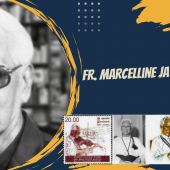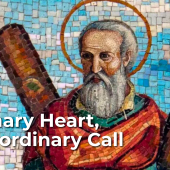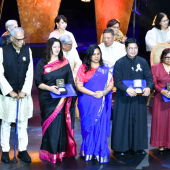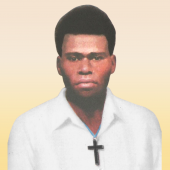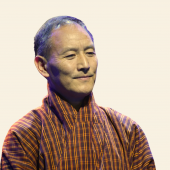Who is ‘Ka Dodoy,’ the Filipino recipient of this year’s Ramon Magsaysay Award
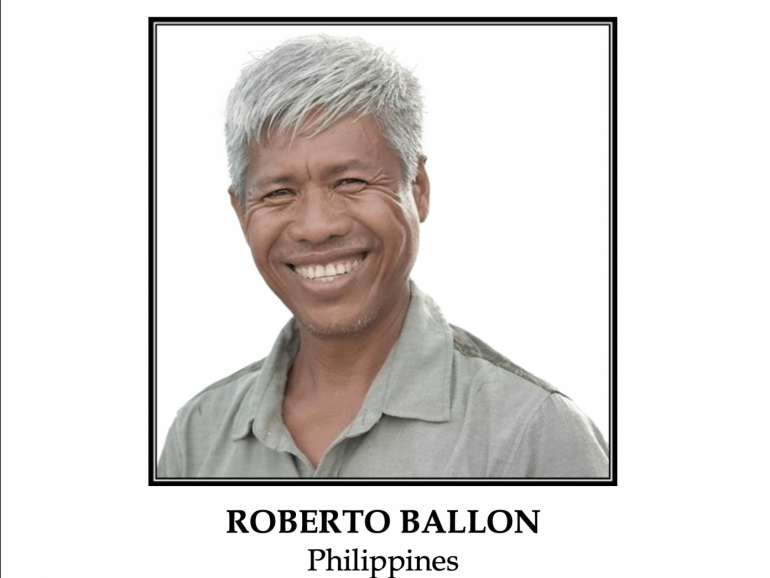
The 53-year-old Roberto Ballon, also known as “Ka Dodoy,” was born to Visayan parents who migrated to the village of Concepcion in Kabasalan town, Zamboanga Sibugay province in Mindanao, when he was in his teens.
Since he was young, Ka Dodoy knew the realities of diminishing fish harvests in once rich fishing grounds. He saw his father spend long hours at sea, like other village fishermen, and come home earning barely enough to buy rice for the family.
Poverty prevented Ka Dodoy from going to college. He knew he would have to “go back to the sea” when he started his own family. He had to take command of the situation he was in.
In 1986, he and 30 other fishermen started the Kapunungan sa Gamay nga Mangingisda sa Concepcion, or the Association of Small Fishermen of Concepcion.
Seeing how fishponds in their village destroyed mangrove forests and how these have been abandoned after the business collapsed, Ka Dodoy’s group decided to focus on reforestation.
With little help and meager returns, the association’s members dwindled to three. Ka Dodoy, the chairman, persisted until he attracted government support.
In early 2000, he reached a milestone when the fishermen in the village were granted tenurial rights to the reforested land under a government forestry co-management program.
The 50 hectares the villagers replanted in 1994 had expanded to five-hundred hectares of mangrove forests in 2015.
What was once a desert of abandoned fishponds is now an expanse of healthy mangrove forests rich with marine and terrestrial life. Fish catch has improved dramatically from 1.5 kg per fishing trip of eight hours to as much as 7.0 kg in three-to-five hours of fishing.
The improvement in the fisherfolk’s quality of life has been evident in their ability to buy a boat engine or simple household appliances and send their children to school.
From a handful of members in the 1980s, the association now has a membership of 320 households.
The group’s success led to other projects.
In partnership with the municipal government, members of the organization have been deputized to conduct sea patrols aimed at protecting municipal waters from illegal fishing and mangrove logging.
They have also attracted partnerships with development institutions in livelihood and social enterprise projects like oyster production, shell and crab culture, and seaweed farming.
The group’s initiatives have been replicated in other towns in Zamboanga Sibugay province and beyond.
These and other changes have given new life to the town of Kabasalan, now regarded as the seafood capital of the province and an ecotourism destination.
The key mover in this transformation is Ka Dodoy. His exceptional dedication to serving others and self-sacrificing leadership that puts the group’s interest before his own have transformed his community.
When Ka Dodoy and his fellow fishermen were starting out, he said: “Our families depend on the sea for our survival, not on politicians or other people, so it is only right that we make its protection our priority.”
The Ramon Magsaysay Award Foundation recognized Ka Dodoy’s “inspiring determination in leading his fellow fisherfolk to revive a dying fishing industry by creating a sustainable marine environment for this generation and generations to come.”
The Award noted the fisherman’s “shining example of how everyday acts of heroism can truly be extraordinary and transformative.” - Jose Torres Jr. / LiCAS.news
Radio Veritas Asia (RVA), a media platform of the Catholic Church, aims to share Christ. RVA started in 1969 as a continental Catholic radio station to serve Asian countries in their respective local language, thus earning the tag “the Voice of Asian Christianity.” Responding to the emerging context, RVA embraced media platforms to connect with the global Asian audience via its 21 language websites and various social media platforms.









